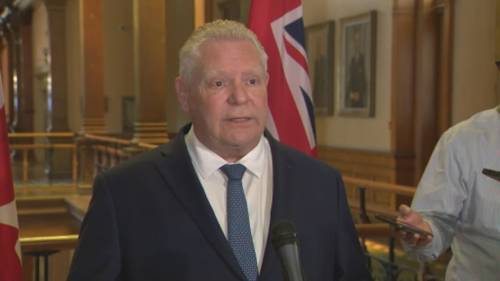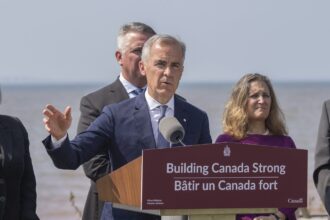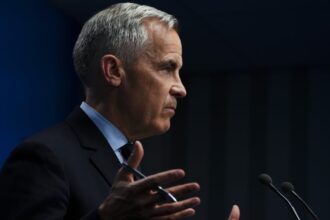Ontario Premier Doug Ford delivered a blistering critique of former U.S. President Donald Trump’s decision to impose steep 50% tariffs on Canadian steel, claiming the move violates a verbal agreement between the two countries.
“I’m extremely disappointed in President Trump. He broke a verbal agreement,” Ford declared during a press conference at Queen’s Park on Tuesday. The Premier’s unusually direct criticism comes as Canadian officials scramble to respond to what many view as an unexpected economic assault on a key Canadian industry.
Ford revealed he had communicated with Trump and his team directly about the issue, emphasizing that Canada should be exempted from such measures. “We’re not the problem,” Ford insisted, pointing out that Canada represents a crucial trading partner rather than a security threat to American interests.
The Ontario Premier’s frustration was palpable as he described Canadian steel production as “the cleanest in the world,” contrasting it with manufacturing practices in countries like China and India. “We produce steel that has a quarter of the emissions compared to other jurisdictions,” Ford stated, questioning the logic behind targeting Canadian producers.
Economic analysts at the CO24 Business desk estimate these tariffs could potentially devastate communities across Ontario’s manufacturing heartland, where steel production forms the backbone of several regional economies. Hamilton, Sault Ste. Marie, and other steel-producing cities now face significant uncertainty.
The federal government has also expressed alarm, with Trade Minister Mary Ng calling the tariffs “unacceptable” and promising to “stand up for Canadian workers.” This development represents a sharp deterioration in Canada-U.S. relations, reminiscent of tensions during Trump’s previous administration.
Industry representatives warn the tariffs could disrupt integrated supply chains that have developed over decades. “This isn’t just about steel,” explained Catherine Cobden, president of the Canadian Steel Producers Association. “It’s about thousands of jobs and dozens of communities that depend on this trade relationship.”
Political observers from CO24 Politics note this represents a significant challenge for Prime Minister Justin Trudeau, who must now navigate increasingly complex trade waters while facing domestic pressure to protect Canadian workers.
The timing is particularly problematic as both countries prepare for a transition in U.S. leadership. While Canadian officials have opened diplomatic channels to discuss the matter, the uncertainty surrounding Trump’s approach to international trade agreements looms large over these discussions.
As Canadian steel producers calculate the potential impact of these punitive measures, the fundamental question remains: Can the long-standing economic partnership between Canada and the United States withstand the strain of increasingly protectionist policies, or are we witnessing a fundamental reshaping of North American trade relations?
























